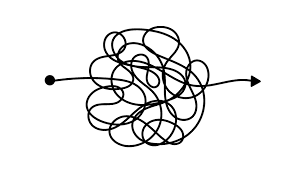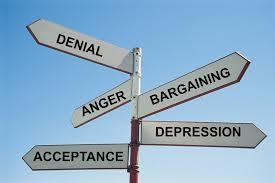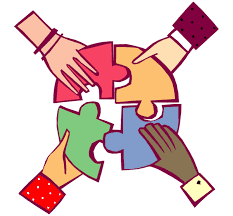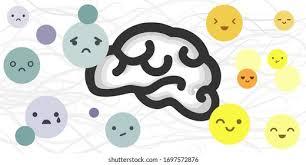The Stages of Grief: How to Understand Your Feelings
Curated from: healthline.com
Ideas, facts & insights covering these topics:
20 ideas
·3.64K reads
22
Explore the World's Best Ideas
Join today and uncover 100+ curated journeys from 50+ topics. Unlock access to our mobile app with extensive features.
The Stages of Grief: What Do You Need to Know?
Grief is universal. At some point, everyone will have at least one encounter with grief. It may be from the death of a loved one, the loss of a job, the end of a relationship, or any other change that alters life as you know it.
Grief is also very personal. It’s not very neat or linear. It doesn’t follow any timelines or schedules. You may cry, become angry, withdraw, or feel empty. None of these things are unusual or wrong.
Everyone grieves differently, but there are some commonalities in the stages and the order of feelings experienced during grief.
35
368 reads
Are there 5 or 7 stages of grief?
In 1969, a psychiatrist named Elizabeth Kübler-Ross wrote a book “On Death and Dying” that grief could be divided into five stages. Her observations came from years of working with terminally ill individuals.
Her theory of grief became known as the Kübler-Ross model. While it was originally devised for people who were ill, these stages of grief have been adapted for other experiences with loss, too.
The five stages of grief may be the most widely known, but it’s far from the only popular stages of grief theory. Others exist as well, including ones with seven stages and ones with just two.
34
256 reads
Stage 1: Denial
Grief is an overwhelming emotion. It’s not unusual to respond to the strong and often sudden feelings by pretending the loss or change isn’t happening.
Denying it gives you time to more gradually absorb the news and begin to process it. This is a common defense mechanism and helps numb you to the intensity of the situation.
As you move out of the denial stage, however, the emotions you’ve been hiding will begin to rise. You’ll be confronted with a lot of sorrow you’ve denied. That is also part of the journey of grief, but it can be difficult.
36
225 reads
Stage 2: Anger
Where denial may be considered a coping mechanism, anger is a masking effect. Anger is hiding many of the emotions and pain that you carry.
This anger may be redirected at other people, such as the person who died, your ex, or your old boss. You may even aim your anger at inanimate objects. While your rational brain knows the object of your anger isn’t to blame, your feelings in that moment are too intense to act according to that.
Anger may mask itself in feelings like bitterness or resentment. It may not be clear-cut fury or rage.
36
205 reads
Stage 3: Bargaining
During grief, you may feel vulnerable and helpless. In those moments of intense emotions, it’s not uncommon to look for ways to regain control or to want to feel like you can affect the outcome of an event. In the bargaining stage of grief, you may find yourself creating a lot of “what if” and “if only” statements.
It’s also not uncommon for religious individuals to try to make a deal or promise to God or a higher power in return for healing or relief from the grief and pain. Bargaining is a line of defense against the emotions of grief. It helps you postpone the sadness, confusion, or hurt.
35
194 reads
Stage 4: Depression
Whereas anger and bargaining can feel very active, depression may feel like a quiet stage of grief.
In the early stages of loss, you may be running from the emotions, trying to stay a step ahead of them. By this point, however, you may be able to embrace and work through them in a more healthful manner. You may also choose to isolate yourself from others in order to fully cope with the loss.
That doesn’t mean, however, that depression is easy or well defined. Like the other stages of grief, depression can be difficult and messy. It can feel overwhelming. You may feel foggy, heavy, and confused.
34
139 reads
Stage 5: Acceptance
Acceptance is not necessarily a happy or uplifting stage of grief. It doesn’t mean you’ve moved past the grief or loss. It does, however, mean that you’ve accepted it and have come to understand what it means in your life now.
You may feel very different in this stage. That’s entirely expected. You’ve had a major change in your life, and that upends the way you feel about many things.
Look to acceptance as a way to see that there may be more good days than bad. There may still be bad — and that’s OK.
36
142 reads
The 7 stages of grief
The seven stages of grief are another popular model for explaining the many complicated experiences of loss. These seven stages include:
· Shock and denial
· Pain and guilt
· Anger and bargaining
· Depression
· The upward turn
· Reconstruction and working through
· Acceptance and hope
37
194 reads
Pain and guilt:
You may feel that the loss is unbearable and that you’re making other people’s lives harder because of your feelings and needs.
34
166 reads
Anger and bargaining:
You may lash out, telling God or a higher power that you’ll do anything they ask if they’ll only grant you relief from these feelings or this situation.
34
148 reads
Depression:
This may be a period of isolation and loneliness during which you process and reflect on the loss.
34
150 reads
The upward turn:
At this point, the stages of grief like anger and pain have died down, and you’re left in a more calm and relaxed state.
34
157 reads
Reconstruction and working through:
You can begin to put pieces of your life back together and move forward.
34
151 reads
Analysis of Stages of Grief Theory - 1
There’s no one stage that’s universally considered to be the hardest to endure. Grief is a very individual experience. The toughest stage of grief varies from person to person and even from situation to situation.
Grief is different for every person. There’s no exact time frame to adhere to. You may remain in one of the stages of grief for months but skip other stages entirely.
Additionally, not everyone will experience all stages of grief, and you may not go through them in order. For example, you may begin coping with loss in the bargaining stage and find yourself in anger or denial next.
33
101 reads
Analysis of Stages of Grief Theory - 2
Avoiding, ignoring, or denying yourself the ability to express your grief may help you dissociate from the pain of the loss you’re going through. But holding it in won’t make it disappear. And you can’t avoid grief forever.
Over time, unresolved grief can turn into physical or emotional manifestations that affect your health.
In order to heal from a loss and move on, you have to address it. If you’re having trouble processing grief, consider seeking out counseling to help you through it.
Grief is a natural emotion to experience when going through a loss.
32
95 reads
Analysis of Stages of Grief Theory - 3
While everyone experiences grief differently, identifying the various stages of grief can help you anticipate and comprehend some of the reactions you may experience throughout the grieving process. It can also help you understand your needs when grieving and find ways to have them met.
Understanding the grieving process can ultimately help you work toward acceptance and healing.
32
98 reads
The takeaway
The key to understanding grief is realizing that no one experiences the same thing. Grief is very personal, and you may feel something different every time. You may need several weeks, or grief may be years long.
If you decide you need help coping with the feelings and changes, a mental health professional is a good resource for vetting your feelings and finding a sense of assurance in these very heavy and weighty emotions.
34
97 reads
Grief Quote
“How lucky I am to have something that makes saying goodbye so hard.”
-Winnie the Pooh
36
195 reads
IDEAS CURATED BY
CURATOR'S NOTE
The Stages of Grief: What You Need To Know
“
Tom Joad's ideas are part of this journey:
Learn more about mentalhealth with this collection
How to create a diversified portfolio
How to analyze stocks and bonds
Understanding the basics of investing
Related collections
Similar ideas
9 ideas
The 5 Stages of Grief
psychcentral.com
7 ideas
4 ideas
What's the point of grief?
theconversation.com
Read & Learn
20x Faster
without
deepstash
with
deepstash
with
deepstash
Personalized microlearning
—
100+ Learning Journeys
—
Access to 200,000+ ideas
—
Access to the mobile app
—
Unlimited idea saving
—
—
Unlimited history
—
—
Unlimited listening to ideas
—
—
Downloading & offline access
—
—
Supercharge your mind with one idea per day
Enter your email and spend 1 minute every day to learn something new.
I agree to receive email updates




















